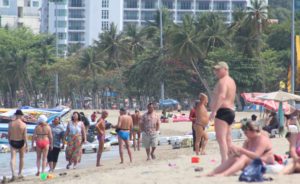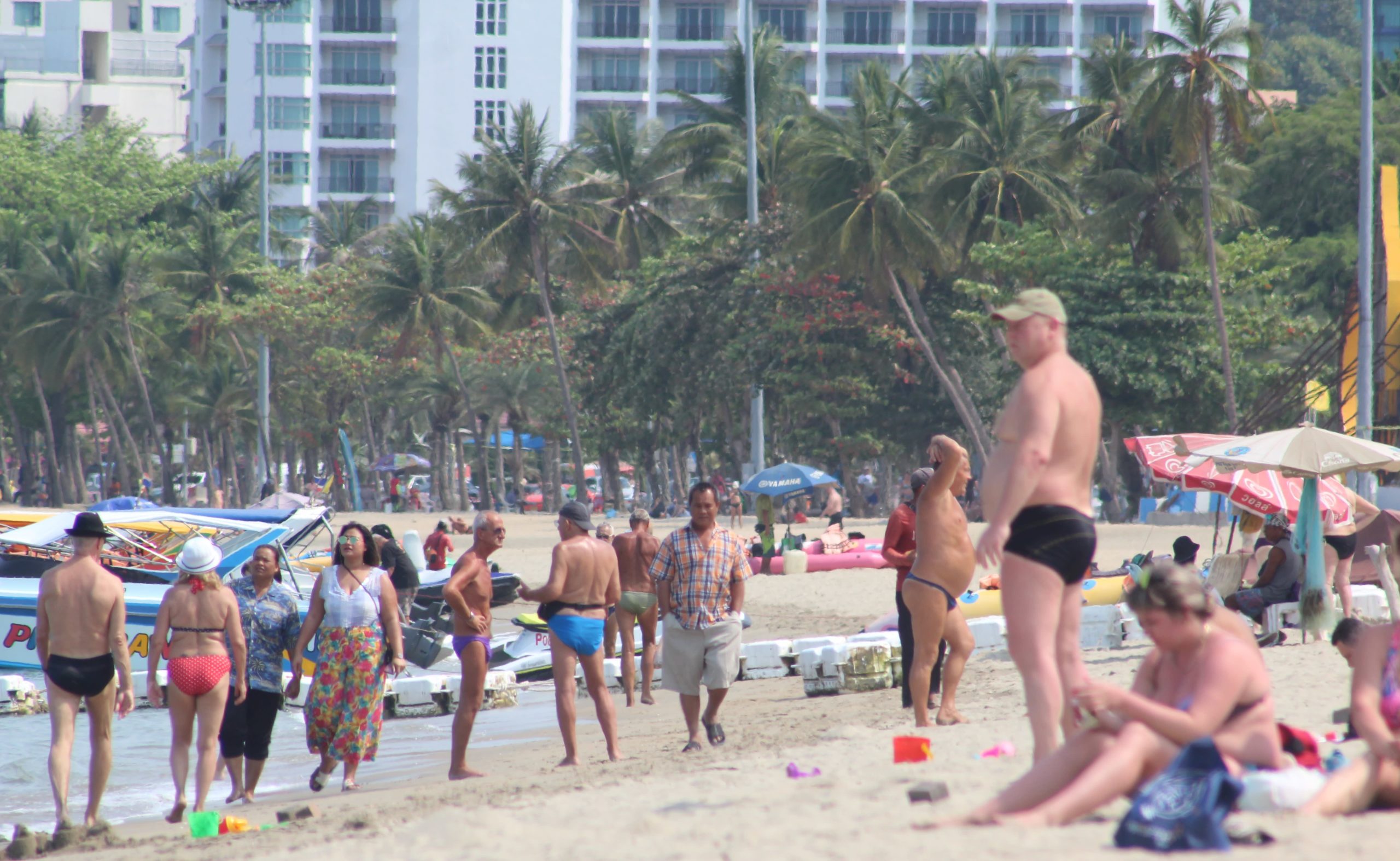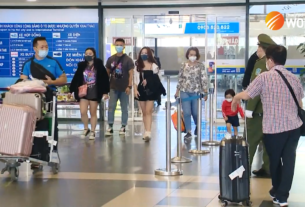
Thailand’s foreign retirees see their good life slip away
Surging baht and new rules dull the country’s allure for budget-minded expats
From the mountains of Chiang Mai to the beaches of Phuket, Thailand has long been a draw for foreign retirees wishing to spend their golden years in tropical bliss. But for the many who have enjoyed paradise on the cheap, their dreams are ebbing away as the country opens up to a wealthier class of retirees.
The Thai baht rose to a six-year high against the dollar last year to become one of the world’s most stable currencies. Though it has depreciated in the past two months, it is still significantly stronger compared to three or four years ago. Seen as a safe bet amid the U.S.-China trade war, the baht has caused visitor numbers to drop and hotel occupancy rates to halve.
But for those living here on fixed savings or pensions, the baht’s strength has decimated their income. British expats have lost about 30% of their purchasing power following the pound’s plummet in the wake of Brexit.
The financial squeeze comes amid changes to visa rules for retirees. As of February last year, foreigners must have a security deposit of 800,000 baht ($25,364) in a Thai bank account for two months prior to application or a monthly income of 65,000 baht; or a combination of the two totaling 800,000 baht.
Applicants must now also have health insurance. For someone aged 75, for example, that is a “big problem” as the premium could be as much as 100,000 baht per month, said Sebastian Brousseau, CEO of Isaan Lawyers.
The stringent regulations have caught many elderly expats used to a free and easy lifestyle off guard, with many fearing for their future. Here in Pattaya, a coastal city with a big retired community, the sense of desperation is palpable.
“Life in Pattaya has been getting worse for people ever since the economic crisis and since a few years ago,” said Leng Leng, who runs Mercy Pattaya, a local Christian charity.

Pattaya has been a haven for expats ever since American servicemen flocked here for sun and sleaze during the Vietnam War, turning a sleepy fishing village into Asia’s sin city.
Gerry, a U.S. Navy veteran who declined to give his last name, first visited back then and has stayed ever since. At 83, alone and estranged from his family, Gerry has built his life here. But barely able to cover his living costs, let alone the deposit he now needs for a visa, he feels trapped, having been “out of the U.S. system” for more than 30 years.
“I’m too old and too scared to go anywhere else,” he said.
Gerry does not own property here, but for those who do, a downturn in the real estate market has dashed their chances of a quick sell.
Demand for properties has waned since last year as many expats, disgruntled with Thailand’s tightening immigration system, have moved to other parts of Asia, while China has imposed new controls to curb capital flight, said Jean Charles, the founder of TwoFlat Real Estate. The situation has intensified Thailand’s glut, which is set to worsen with arrival numbers decimated by the new coronavirus.
Yet amid this turmoil, the country has been unflinching in its bid to capitalize on the world’s aging populations, promoting Thailand, with its sunny weather and affordable health care, as a place to age with dignity.
Thailand issued almost 80,000 retirement visas in 2018, an increase of 30% from 2014, with Britons accounting for the bulk.
Research by Kasikornthai Bank estimated that in 2016, there were 68,300 foreigners over 50 years old holding long-stay visas, a 9% increase over the preceding two years.
The market’s niche but lucrative potential is prompting huge investment from health care operators.
The Thonburi Healthcare Group launched Jin Well-being County in 2018, a 3.7-billion baht retirement city complete with a hospital and apartments aimed at wealthy Thais and Asians. The group plans to build a 43-hectare facility in Krabi targeting largely Westerners in the coming years, said Jin Well-being manager Ken Chen.
“It’ll be more like a five-star hotel,” said Chen.
At 99,000 baht per sq. meter, Jin Well-being’s apartments are not cheap, but for foreigners they could help bypass some of the stringent retirement visa rules, said Chen.
Bolstering this bid for wealthy retirees, the government has been successfully promoting an elite visa scheme, with options for five-, 10- and 20-year visas ranging from 500,000 baht to 2 million baht.

Applications among retirees jumped on average 34% between 2016 and 2019 amid record growth, after citizenship advisory firm Henley & Partners Group was appointed as exclusive global concessionaire for the program.
By avoiding the need for annual renewal, the elite visas offer “longer-term certainty” for those wishing to live or invest here, along with other “bells and whistles,” said Dominic Volek, Henley’s Head of Southeast Asia.
The bid to lure wealthier individuals has made many here feel they are being squeezed out, said Darren Low, owner of The Sportsman pub in Pattaya.
Yet Low is hopeful that with Thai economic growth dropping to a five-year low last year and tourist arrivals forecast to drop as much as 50%, the government might look to expats to buffer the economic impact.
A positive sign came earlier this year when the government quietly dropped a revived immigration law that drew heavy criticism, days after China announced a ban on overseas tours to contain the coronavirus.
Meanwhile, relief from the baht is expected after it softened at the start of the year, following the central bank’s announcement that it will relax rules on capital outflows to weaken the currency.
Yet Low has noticed many around him have already abandoned themselves to despair, drinking heavily as their once-rosy vision of Thailand turns bleak.
“People are just deteriorating,” said Low.
Even if the government does throw them a lifeline, it may be too late. “It probably already is,” he said.
Source: https://asia.nikkei.com/Economy/Thailand-s-foreign-retirees-see-their-good-life-slip-away

